Morningstar Read online
Morningstar
Growing Up with Books
ANN HOOD
W. W. NORTON & COMPANY
Independent Publishers Since 1923
New York | London
This book is for all the giants whose shoulders I stand on—
With thanks for letting me see farther
Contents
Introduction: Growing Up with Books
Lesson 1: How to Dream
Lesson 2: How to Become a Writer
Lesson 3: How to Ask Why
Lesson 4: How to Buy Books
Lesson 5: How to Write a Book
Lesson 6: How to Fall in Love with Language
Lesson 7: How to Be Curious
Lesson 8: How to Have Sex
Lesson 9: How to See the World
Lesson 10: How to Run Away
Acknowledgments
Morningstar
Introduction
• Growing Up with Books •
WHEN I WAS FOUR YEARS OLD, FOR REASONS NO ONE in my family could explain, I picked up my older brother Skip’s reading book and I read it. This was in 1959 or 1960, but I can still remember staring at that page and reading the words Look! Look! In that instant, all of my cells seemed to settle into place and I had one thought: I want to live inside a book.
I did not grow up in a family that owned books. My great-grandparents had immigrated from Italy in the late 1800s as part of the large exodus of southern Italian farm laborers who, burdened by heavy taxes, low pay, and harsh living conditions, came to the United States to work in the mills for higher wages and security. Their daughter, my grandmother Mama Rose, left school in third grade for a job in the big textile mill that loomed over the neighborhood. She never learned to read or write, except for her slow, careful, seemingly painful signature. Of her ten children, their education interrupted by the death of their father and the start of World War II, only three graduated from high school. The girls all went to work in various factories—making artificial flowers or luggage or soap; the boys became barbers or mechanics. Reading was not something for which they had time or inclination.
My father, a small-town Indiana boy from a family of nine, dropped out of high school to join the navy and see the world. He had a love for cheap paperbacks that he read at sea, Zane Grey and James Cain. But I never saw him read a book at home. In fact, I never saw anyone read a book at home.
Yet I did grow up with stories, stories told around the kitchen table on Saturday afternoons or after dinner during the week. Aunts and uncles, great-aunts and-uncles, cousins and second cousins and cousins twice removed, relatives with confusing family ties, all sat and drank black coffee and talked into the night. I learned early that you had to earn your place at that table. Your story had to start with a hook, include vivid details, have strong characters, and be full of tension or someone who talked louder and could tell her story better would overpower you. Truman Capote said that he learned how to write a story not from reading but from sitting on his aunts’ front porch in Alabama and listening to them tell stories. This was my earliest education in the art of storytelling too.
But I yearned for another kind of story, the kind I found in books. When I was very young, each village in our town had its own library. These villages had all evolved around mills, and they had their own ethnic population: the French-Canadians and Irish and Italian and Portuguese and Polish, each a chapter in our town’s own immigrant history. The Italians lived in Natick, and the Natick Library sat in a basement on a sad dead-end street on the banks of the Pawtuxet River, the river that led to all the mills being built in West Warwick and all the immigrants—like my great-grandparents—who flocked there for work. When I was a young child, the Pawtuxet River was brown and sluggish, topped by a yellowish foam. It flooded frequently. The books in that small library smelled of polluted water and mold and dank cellar air. I only got to go there a few times in first grade before it was shut down for good, but I remember picking up the books and bringing them to my nose, inhaling deeply. To me, that terrible smell was wonderful.
My small school at the bottom of the hill where our house was perched had no school library. Instead, each teacher had books on shelves in the back of the classroom—books we were not allowed to read until we’d finished all of our class work: the smudged blue mimeographed worksheets, the arithmetic written in pencil on small rectangular off-white paper, the connect-the-dots alphabet on yellow lined paper. I found it hard to concentrate on any of it. The books behind me seemed to whisper for me to come. I would glance over my shoulder, a fat pink eraser clutched in my hand, and read the titles, already trying to choose which one I’d read when I finally—finally!—finished my times tables.
It’s hard to describe the magic that books held for me then. Even our class reading books brought me my happiest moments at school. I was an awkward, shy kid. Bad at sports and ignorant of playground etiquette, I usually sat alone on the blacktop and played jacks during recess, swiping up the shiny jacks and small red ball over and over so often that the side of my right hand was always scraped. But when Miss Dwyer or Mrs. McMahon announced it was time to get into our reading groups, I was always the first one to pick up my chair and sit in the circle, book immediately open in my lap. If my teacher had to go to the bathroom, she would order the class to take out their reading books and announce that Ann was going to read aloud until she got back. What pleasure I took in that, even though no one listened as I read. I didn’t care. I was in the world of stories and words, a world I preferred to the classroom or playground.
But what is a child who loves books that much supposed to do when she has no access to them? Every week at home Time magazine arrived, and every month we got Reader’s Digest. In the early evening, just before supper, the paperboy brought the evening newspaper. And so my earliest reading was “Milestones” in Time; “Life in These United States,” “Humor in Uniform,” “Drama in Real Life,” and “How to Build Your Word Power” quizzes in Reader’s Digest; “Dear Abby,” horoscopes, and “Hints from Heloise” (save your old onion bags and use them for hairnets!) in the newspaper.
Until second grade. That’s when I finally got a real book to read.
MY COUSIN GLORIA-JEAN—a year older, dark curly haired to my straight blond—went to Maisie E. Quinn, the new elementary school in town. Like us, our schools were physically opposites: hers a rambling one-story with lots of windows; mine, painted yellow with shiny wood floors and old enough that our grandmother and parents had gone there. Maisie E. Quinn had a cafeteria; we ate our brown-bag lunches at our desks. And Maisie E. Quinn had a library.
That is where, I suppose, my cousin got a copy of and read Little Women, and passed it along to me. Until then, the only books I had access to were the ones in the Childhood of Famous Americans series that my second-grade teacher, Miss Virginia Nolan, kept in the back of the classroom. I was working my way through all of those orange-covered books. John Philip Sousa, Marching Boy. Betsy Ross, Girl of Old Philadelphia. Eli Whitney, Boy Mechanic. Little Women was something else. Fat, with small type and many chapters, it was a real book, the kind I glimpsed when my mother pulled me past the tiny Books department at Ann & Hope, the local discount store. The kind I imagined filled shelves in libraries.
From the first line—“ ‘Christmas won’t be Christmas without any presents,’ grumbled Jo, lying on the rug”—I was hooked. With each detail—the introduction of the four March sisters, the utterance of that beloved nickname “Marmie” for their mother, the absent father away at war, the plays written and performed by the March sisters, the neighbor boy Laurie—I fell deeper and deeper into the story. All these years later I recognize how magical this experience truly was. I wanted to live inside a book, and this was the first time I really did.
“What? No. No, you’re not,” my no-nonsense mother said.
A day later: “May I carry a baked potato to keep my hands warm? And put it inside a muff?” I asked.
“No! Put on your mittens!” Then with a sigh: “Why are you so weird?”
She had dreamed of a beauty-queen daughter, a cheerleader, a popular girl. Instead she got me, a pageant dropout after just two trophies, too clumsy to be a cheerleader or playground star, quoting “Drama in Real Life” and wondering aloud about photosynthesis.
Little Women's pages brought me into a different world from my Italian immigrant one, which was large and loving, dramatic and loud. Our house was always full of relatives, many of whom spoke very little English. We were taught to respect our elders, which meant to kiss them hello and goodbye. Even though this often earned me a few dollars from grateful relatives who pinched my cheek or stroked my blond banana curls, cooing, Bella!, I didn’t like the way they smelled (I realize now that they smelled of food cooking, chopped onions and garlic, dirt and sun). I didn’t like that we kids were required to give up our seats to them and crowd together on the sofa or floor, silent.
My great-grandmother, Nonna, was a strong, imposing woman, a strega who cured sciatica, migraines, and broken hearts through prayers and magic. People lined up on our block for her services, offering embroidered linens, homemade wine, and the best eggplants and squash from their gardens in lieu of money. Still, Nonna was afraid of two things: flush toilets because she believed they could flush you away, and furnaces because she thought at night they released toxic fumes. Luckily, we did have a toilet, though Nonna kept an outhouse in the backyard, a huge source of embarrassment for me. However she refused to get a furnace. Instead we had a coal stove in the kitchen until 1966. The coal man came every week, and Mama Rose and Nonna shoveled the coal into the coal bin in the dirt basement and started the fire in the kitchen stove early on cold winter mornings.
They also grew much of the food we ate. The community garden stretched far behind our house, and from it came the tomatoes and peppers and cucumbers and string beans; the cherries and pears and apples and figs; the zucchini and mint and basil and carrots. They raised chickens and rabbits too, and before I left for school I was sent into the backyard to kiss them goodbye, gagging at their blood-spattered aprons and the feathers and fur that lay on the ground at their feet.
Little Women took me away from all of this and transported me to the March household in Massachusetts during the Civil War. It was all I could think about at school: What will Jo do when Amy burns her manuscript? Will Laurie join the sisters’ club, the Pickwick Club? What will happen next? As soon as I got home, Mama Rose would hand me a plate of bread covered in spaghetti sauce or a handful of figs, and I’d sit eating and reading until it was time to set the table for dinner. Some afternoons I would look up, surprised by the shift of light in the room. Surprised that I was actually still in the kitchen rocking chair at home in my little town, that my brother was at the table with his slide ruler and math book, that dinner was ready.
Then I reached chapter 36: “Beth’s Secret.” Beth is the most lovable, kindest March sister. Jo is confident and ambitious, Meg maternal and ordinary, Amy pretty and spoiled. But Beth! So sweet! So frail after an earlier illness. All fall she appeared to be melancholy, and now in chapter 36 she confesses to Jo that was because she knew she would die soon. Although Jo tries to convince her otherwise, Beth insists it’s true. To my seven-year-old self, the idea that a beloved character might die was almost too much to bear. But the idea that we somehow know when we are going to die was downright terrifying. Had my mother’s sister Ann—my namesake—known that when she went into the hospital to get her wisdom teeth pulled, she was going to die? Then why had she gone? Why didn’t she cancel the operation and stay home? Had her brother, my uncle Brownie, known he’d have a fatal heart attack at a dance on Valentine’s night? But why wouldn’t he go straight to the hospital instead?
For several chapters, Beth goes virtually unmentioned, which lulled me into a false sense of security. See? She wasn’t going to die! Would Amy and Laurie dance together in Nice if Louisa May Alcott intended to kill off Beth? Would Meg and John work so hard on their marriage if doom was around the corner? Would Jo throw herself into writing for the Weekly Volcano if her favorite sister were about to die? Would a writer dedicate so many chapters to illustrating the pros and cons of marriage—Meg and John’s, yes, but also Jo’s decision to say no to Laurie’s proposal—if a main character was dying? I decided no. Beth would surely live.
As an adult, and a writer, I suspect that Beth had to die. Her role in the second half of the novel did not seem tenable. Elizabeth Lennox Keyser posits that Beth’s quiet, old-fashioned character who clings to outdated values symbolizes the changing role of women and therefore had to die. Still, when I began chapter 40: “The Valley of the Shadow” at the breakfast table one morning and read about the family setting up a special room for Beth with her piano and Amy’s drawings in it, an overwhelming dread filled me.
I tucked the book into my pile of textbooks and walked to school, that dread growing with each step. At school, I hung my red wool jacket with the toggle buttons on a hook in the hallway and took my seat in the back of the room, Little Women open in my lap. Meg was bringing the twins to visit Beth, almost like a farewell. I swallowed hard, afraid I might start to cry. I kept reading.
Our mornings began when Miss Nolan entered the classroom and all forty of us jumped to our feet.
“Good morning, class,” Miss Nolan would say.
“Good morning, Miss Nolan,” we’d reply.
We’d pivot to face the flag, bend our heads for a moment of silence, then place our hands over our hearts and recite the Pledge of Allegiance. After which Miss Nolan would announce the name of the patriotic song we’d sing—“America the Beautiful” or “God Bless America” or, my favorite, “The Battle Hymn of the Republic.” Miss Nolan would then make a downward motion with her hands and we’d sit.
But on the day Beth was dying, I didn’t hear Miss Nolan enter the classroom. I wasn’t aware of the class rising, or saying the Pledge of Allegiance, or singing a patriotic song. While all of that went on around me, Beth peacefully died. Just like that. When the class took their seats again, I looked up, stunned by grief.
Miss Nolan was looking right at me.
“Ann,” she said, “you will stay in for morning recess because you refused to do the morning exercises.”
It was the first time I’d ever had to stay in for recess, and if truth be told, that was almost a relief. I was terrible at kickball and jump rope, afraid of the monkey bars, and as a mostly friendless kid never really invited to be part of playground activities. When I wasn’t playing jacks, I sat alone and made up stories in my head. It was also the first time I’d ever gotten into trouble, and I worried about what else it might mean. What if Miss Nolan made my mother leave work and come to school? What if she sent me home? I couldn’t concentrate on anything but the big hand on the clock dropping into place at 10:10, when the bell would ring and send everyone, two by two, into the playground.
Finally, 10:10 came, the big hand on the clock clicking noisily into place. The bell rang. The class filed out. And Miss Nolan, sitting regally at her desk, beckoned me forward. Clutching Little Women, I made my slow way up the aisle to her. So terrified was I that I still remember that I was wearing a pink-and-white polka-dot dress that day, and that I held the heavy book to my chest.
Miss Nolan turned her rheumy blue eyes toward me.
“Why didn’t you do the morning exercises?” she asked me. “What were you doing?”
I opened my mouth to answer, but I couldn’t put into words the enormity of the effect this book had on me, how I could think of nothing else, how I reread sentences out loud just for the magic of them.
Finall
y, I held Little Women out in front of me and managed to sputter, “Beth died.” Having said it out loud, I burst into tears and dropped to the ground with grief.
At first, Miss Nolan looked bewildered. But quickly she ordered me to get up.
“You’re reading Little Women?” she asked, looking at the book in my hands.
Unable to muster any more words, I nodded.
“And you understand it?” she asked.
Again, I nodded.
Miss Nolan considered this for what seemed a very long time. Then she asked me to tell her what the book was about.
At this, I began to talk—about Marmie and the March sisters and the plays they put on, about Laurie next door and vain Amy and Jo who wanted to be a writer and how Beth died. I told her it was about family but also about war and dreams and writing and . . . “And,” I said, “everything. It’s about everything.”
Now it was Miss Nolan who nodded. She paused, then pointed to the books—Childhood of Famous Americans—that lined the bookshelves in the back of the classroom.
“I don’t want you to go out to recess anymore,” she said. “I want you to stay inside and read all those books.”
And I did. I read every one. Then Miss Nolan gave me all the third-grade books, and I read every one of them too. By the time I left her class, I’d finished half of the fourth-grade books as well.
How can I describe what reading gave to me? An escape from my lonely school days, where girls seemed to speak a language I didn’t understand. A glimpse into the possibilities of words and stories. A curiosity about the world and about people—the young Amelia Earhart seeing her first airplane, Helen Keller’s silent world, Nancy Drew solving mysteries, David Copperfield surviving the streets of Victorian London.

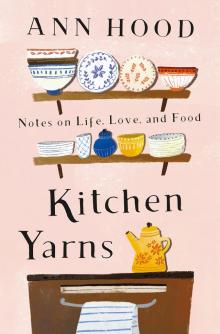 Kitchen Yarns
Kitchen Yarns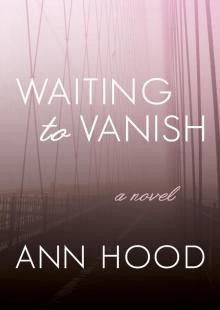 Waiting to Vanish
Waiting to Vanish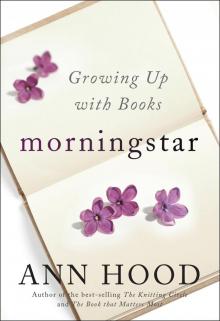 Morningstar
Morningstar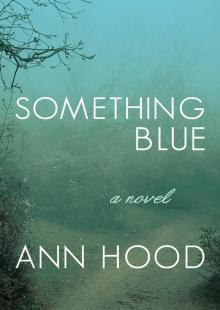 Something Blue
Something Blue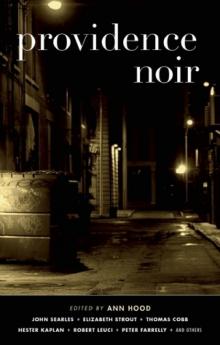 Providence Noir
Providence Noir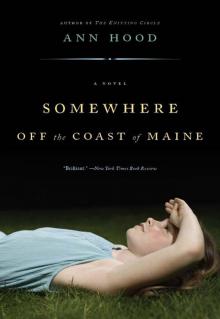 Somewhere Off the Coast of Maine
Somewhere Off the Coast of Maine Jewel of the East
Jewel of the East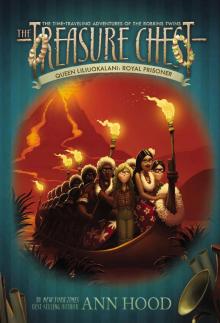 Queen Liliuokalani: Royal Prisoner
Queen Liliuokalani: Royal Prisoner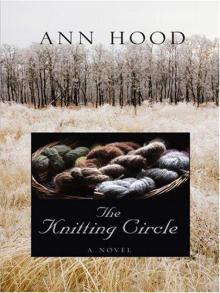 The Knitting Circle
The Knitting Circle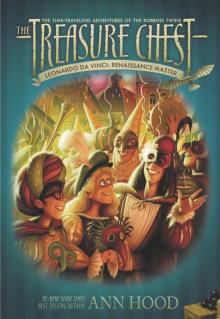 Leonardo da Vinci: Renaissance Master
Leonardo da Vinci: Renaissance Master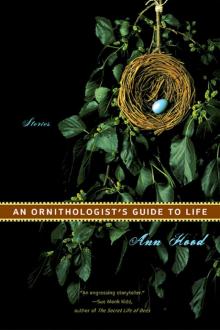 An Ornithologist's Guide to Life
An Ornithologist's Guide to Life The Red Thread
The Red Thread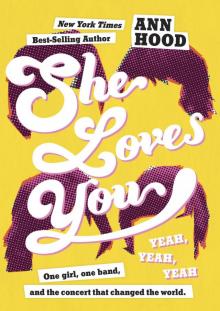 She Loves You (Yeah, Yeah, Yeah)
She Loves You (Yeah, Yeah, Yeah)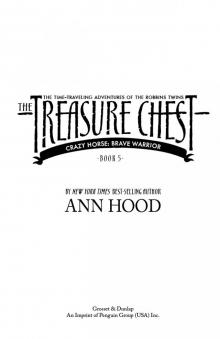 Brave Warrior
Brave Warrior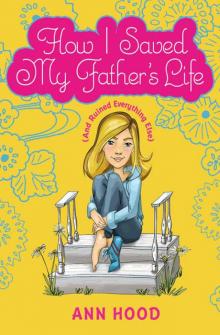 How I Saved My Father's Life (and Ruined Everything Else)
How I Saved My Father's Life (and Ruined Everything Else)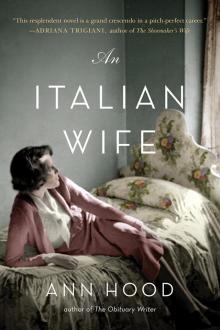 An Italian Wife
An Italian Wife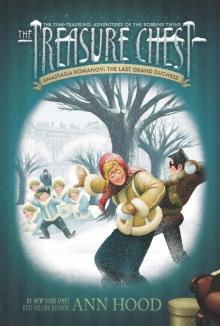 Anastasia Romanov: The Last Grand Duchess #10
Anastasia Romanov: The Last Grand Duchess #10 Prince of Air
Prince of Air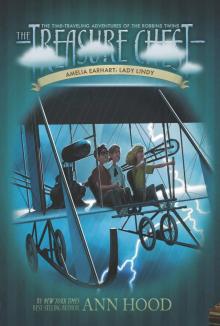 Amelia Earhart: Lady Lindy
Amelia Earhart: Lady Lindy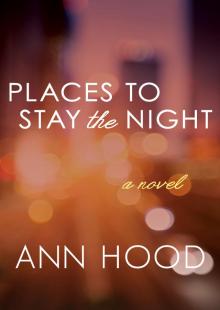 Places to Stay the Night
Places to Stay the Night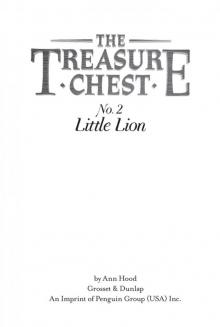 Little Lion
Little Lion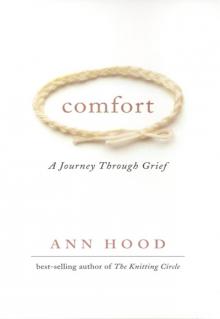 Comfort
Comfort Angel of the Battlefield
Angel of the Battlefield